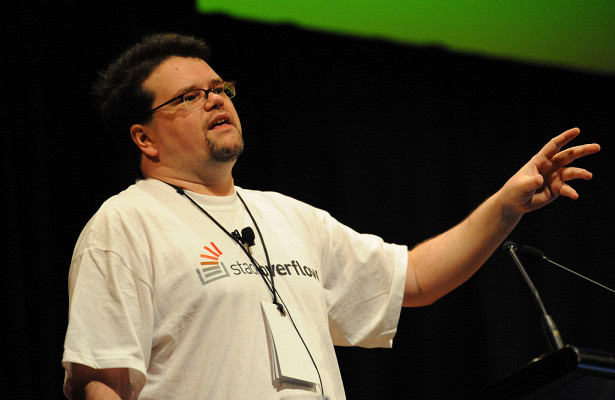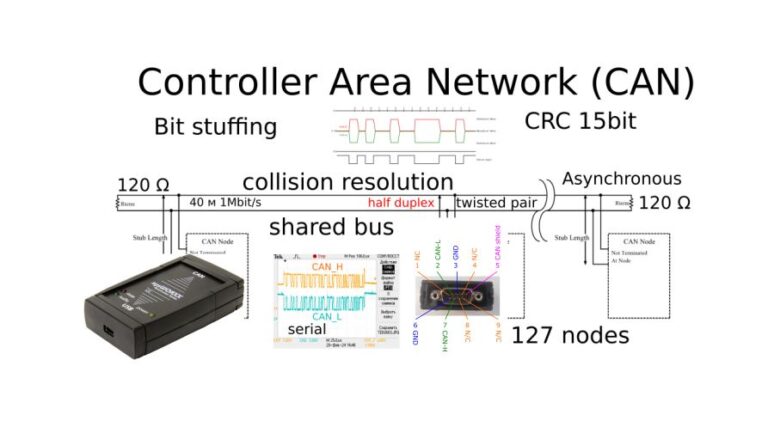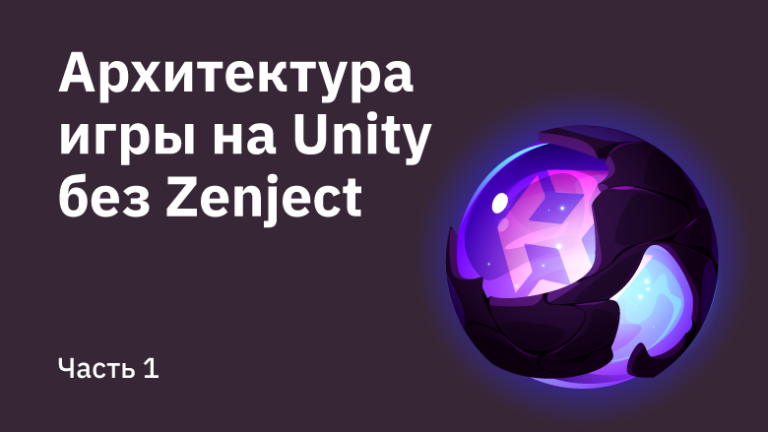The Importance of Downvoting or Hacker News Mistakes

Says Jeff Atwood, co-founder of Stack Overflow and author of Coding Horror. 2009 essay.
Hacker news Paul Graham is a great website where you can find useful programming links and reasonable discussions. The site, to some extent, is an improved version of Reddit. The design was directly designed to avoid the disadvantages of programming reddit.com, and it was not done by someone from the outside (Reddit was once a startup funded by the Paul Graham Foundation Y Combinator). Therefore, we carefully studied this site during the development of Stack Overflow.
Indeed, discussions on Hacker News are much more serious and not as provocative as a kind of anarchy on reddit.com. I personally watched the discussions that arise under my articles published on both sites. In the essay “What I Learned from Hacker News” (rus), Paul writes:
It’s obvious that Theory of Broken Windows applicable to the online community. The theory is that petty offenses give rise to more serious ones: in an area where there is a lot of graffiti and broken windows, more robberies occur. I lived in New York when Giuliani proposed his reforms, after which the theory of broken windows became popular, and public behavior miraculously improved. And I was also a Reddit user and watched the exact opposite, but equally sharp transformation there.
I am not trying to criticize Steve and Alexis. What happened to Reddit did not come from a lack of attention from developers. From the very beginning, nothing but spam was censored. In addition, Reddit and Hacker News initially had different goals. Reddit was a startup, not a third-party project; his goal was rapid development and growth. Add up fast promotion and zero censorship and get absolute freedom of action for everyone. But if the creators had the opportunity to start all over again, I don’t think that they would change anything. According to statistics, Reddit is much more successful than Hacker News.
But what happened with Reddit may not happen with HN.
For anyone interested in creating online communities, I recommend reading this article. As you can imagine, I approached the study of this essay with particular interest, because for the past 7 months we have been working with a full-blown (many times more than I imagined) community of programmers.
Perhaps the most noticeable difference between Hacker News and Reddit is that the former lacks a minus / downvout feature. There is only one way to express your attitude – “pluses” / upvote. Accordingly, you can either “like” something or not do anything. This design decision is interesting, but, in my opinion, bad.
(New information: it turns out that you can “minus” comments, which I did not notice. This spelled out somewhere in the bowels of F.A.Q.)
Why can’t I see the down arrow?
There is no down arrow on the posts. They appear only when the user earns a certain level of karma. [Добавление: это, по какой-то непонятной мне причине, не указано, но в настоящее время надо набрать карму 100].
(I apologize for my omission, but there is no visible user interface that would allow me to lower the post, and for all the time I haven’t seen a single negative comment on Hacker News! they sounded as “Lisp as possible” and Paul Graham could see my corrections).
I must immediately make some important points: Hacker News and Stack Overflow must be compared carefully, because these are fundamentally different sites. Ours works in a question-and-answer format with occasionally occurring discussions, and Hacker News is a site that exists exclusively for discussions and exchange of links. Accordingly, since we have different goals and objectives, the approaches we use may not be applicable to HN, and vice versa.
In Hacker News, each post actually starts from scratch (technically, from one upvote – yours, but we will call it zero) and can go on ad infinitum.

The advantage of this system is that no one gets a negative rating, but such a system is expensive: half of potentially useful information is lost. If a post has 0 upvotes, does this mean that it is bad? Or wrong? Uninteresting? It is impossible to give a definite answer, because zero is perceived differently by everyone.

But it’s worth adding negative marks, and the range immediately doubles. Now a rude or incorrect post is visually different from an uninteresting one, because it will have negative indicators.
But no one wants to get downouts. There is a desire to abandon the idea of lowering posts in order to avoid this discussions:
Please do something so people are less likely to set downouts. Alternatively, increase the “cost” of lowering the message (for those who want to put downouts without stopping, there is already an automatic “declined / refused”).
This is not about points, but about participation. You need to lower only rude / offensive / stupid / poorly thought out / completely unreasonable comments. If someone sincerely wanted to give good advice, but it turned out so-so, just don’t put anything … Downouts seem to say “We do not like this answer. “You spent your precious time writing an answer, but that doesn’t really make us feel like it.” Immediately you start thinking, why am I even trying to help someone on this forum?
I quit writing posts on several Usebet newsgroups because most of their members only want to mock you. Don’t let the same thing happen to Stack Overflow.
You can argue that the adequate manner of discussion on Hacker News is due precisely to the lack of downgrades. I’m not quite sure about that. I think this is more likely due to the fact that HN is a rather young platform launched in February 2007 with a small (but growing) community.
In the process of creating Stack Overflow, we recognized the importance of a full-range assessment of information. Downvotes provide a critical ability to distinguish between good, bad and offensive posts. How to distinguish a harmless but boring post from the wrong and rude without them? Undoubtedly, getting downouts is unpleasant. I also put negative marks on Stack Overflow. And every time it makes me think. And it is right! It’s necessary! You must understand that your actions always have consequences – both good and bad. As a child, we played in the sandbox according to the same rules – why should our Internet sandbox have something different?
The idea of a world in which there are no downwaves sounds utopian to me. Is it realistic to expect people to publish posts if certain limits and sanctions are not set, if their associates cannot express disagreement or discontent? Without the possibility of an anonymous downvote, there is a desire to express their dissatisfaction with the caustic commentary under the recording. That is why the rejection of negative marks in practice only harms the community.
The problem is not the downwinds themselves, but how to make people responsibly lower their posts. Therefore, the following system works on Stack Overflow:
- Upvutes add 10 points to the reputation of the author of the post
- Downwaters subtract 2 points from the author’s reputation and 1 point from your
The trick is that downvotes are mostly informational in nature. The fee for lowering your reputation (or, speaking the language of Slashdot / Reddit, karma) is quite low. It would take five times to lower someone’s post in order to take away points for a single upgrade. And on top of that, a negative review costs you a reputation score too. As a result, this system makes you think carefully before setting up a post to someone’s post. Downouts are a serious matter and should not be underestimated. We designed our system around this principle.
But does it work? I think the data speaks for itself. Here are the positive and negative marks on Stack Overflow on 03/07/2009:
Upvotes – 1,251,020
Downvotes – 122,141
On average, the number of upgrades exceeds 10 times. This is even more optimistic than could be mathematically predicted (10/2 = 5x). This is because we have some other forms of grading control:
- We limit the total number of votes to 30 per day for each user.
- You do not have the right to downgrade until you earn the equivalent of 10 upgrades, i.e. 100 reputation points.
We knew the problems associated with infinite increase in visitors without limitations in evaluating posts, at the very beginning of our journey. Establishing a clear assessment framework has many advantages besides reducing the level of depreciation of grades. Even if you want to take revenge and intentionally try to lower someone’s reputation, you can take away only 60 points in a day, while losing 30 of yours. And you will have to wait another 24 hours to try again to set downouts, which is a good timeout and allows you to cool down.
I understand what Graham wanted to achieve when creating Hacker News. He wanted to create an atmosphere in which negative assessments would not hurt anyone; this goal is laudable, and it is certainly easy to achieve. But is it necessary? Is it fair? The lack of negative marks does not provide sufficient feedback for the community. And in the long run, this is more likely to harm your community than help.

Learn the details of how to get a sought-after profession from scratch or Level Up in skills and salary by taking paid SkillFactory online courses:
- Machine Learning Course (12 weeks)
- Data Scientist Profession Course (24 months)
- Profession Data Analyst Course (18 months)
- Python for Web Development Course (9 months)
Read more
- The coolest Data Scientist does not waste time on statistics
- How to Become a Data Scientist Without Online Courses
- Sorting cheat sheet for Data Science
- Data Science for the Humanities: What is Data
- Steroid Data Scenario: Introducing Decision Intelligence



